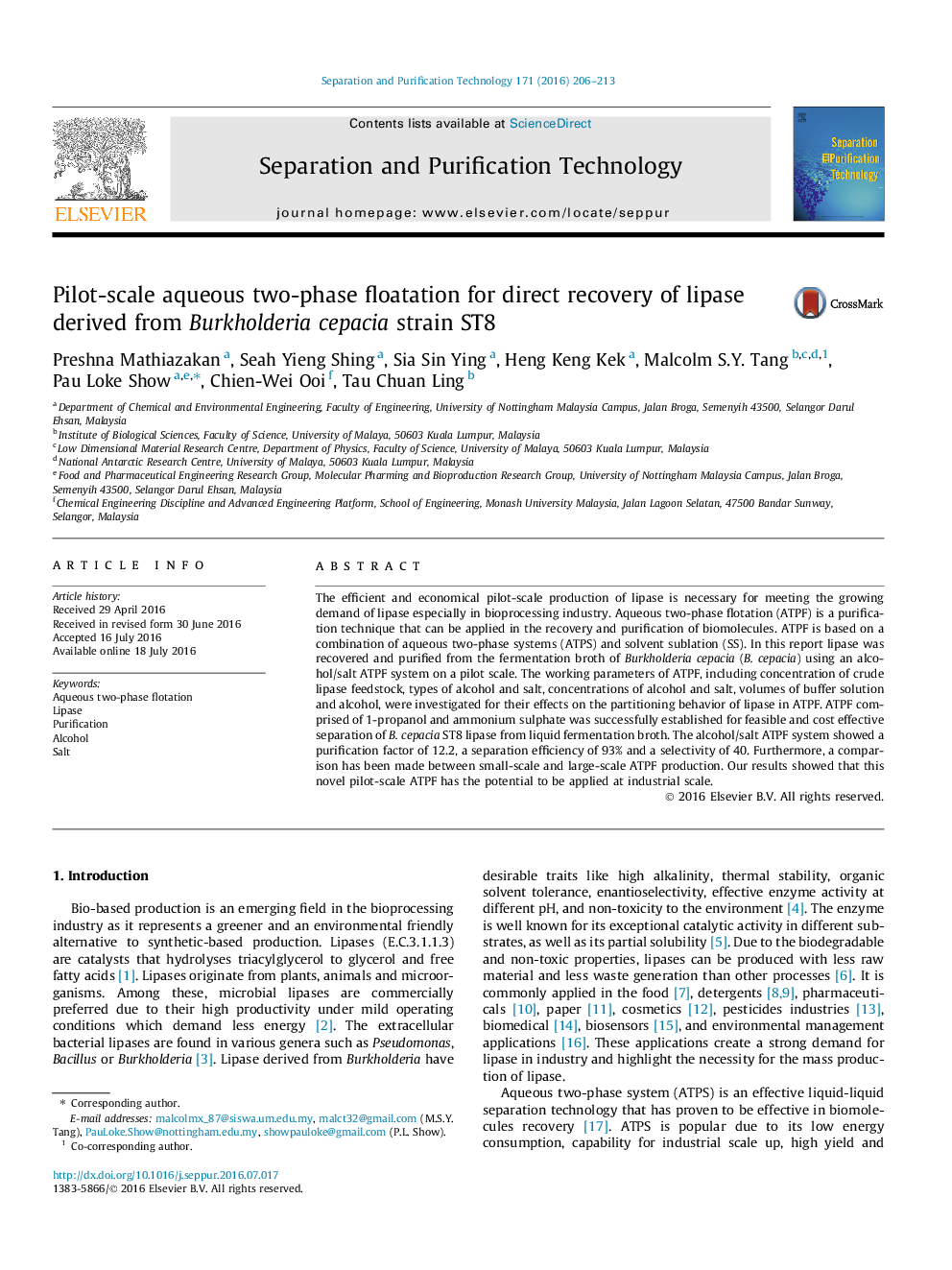| Article ID | Journal | Published Year | Pages | File Type |
|---|---|---|---|---|
| 639785 | Separation and Purification Technology | 2016 | 8 Pages |
•First report on pilot-scale purification of lipase from B. cepacia using ATPF.•The optimum results were obtained from the 1-propanol/ammonium sulphate ATPF.•The results were comparable to that of lab scale purification reported in literature.•Purification of lipase using ATPF is ready for industrial-scale application.
The efficient and economical pilot-scale production of lipase is necessary for meeting the growing demand of lipase especially in bioprocessing industry. Aqueous two-phase flotation (ATPF) is a purification technique that can be applied in the recovery and purification of biomolecules. ATPF is based on a combination of aqueous two-phase systems (ATPS) and solvent sublation (SS). In this report lipase was recovered and purified from the fermentation broth of Burkholderia cepacia (B. cepacia) using an alcohol/salt ATPF system on a pilot scale. The working parameters of ATPF, including concentration of crude lipase feedstock, types of alcohol and salt, concentrations of alcohol and salt, volumes of buffer solution and alcohol, were investigated for their effects on the partitioning behavior of lipase in ATPF. ATPF comprised of 1-propanol and ammonium sulphate was successfully established for feasible and cost effective separation of B. cepacia ST8 lipase from liquid fermentation broth. The alcohol/salt ATPF system showed a purification factor of 12.2, a separation efficiency of 93% and a selectivity of 40. Furthermore, a comparison has been made between small-scale and large-scale ATPF production. Our results showed that this novel pilot-scale ATPF has the potential to be applied at industrial scale.
